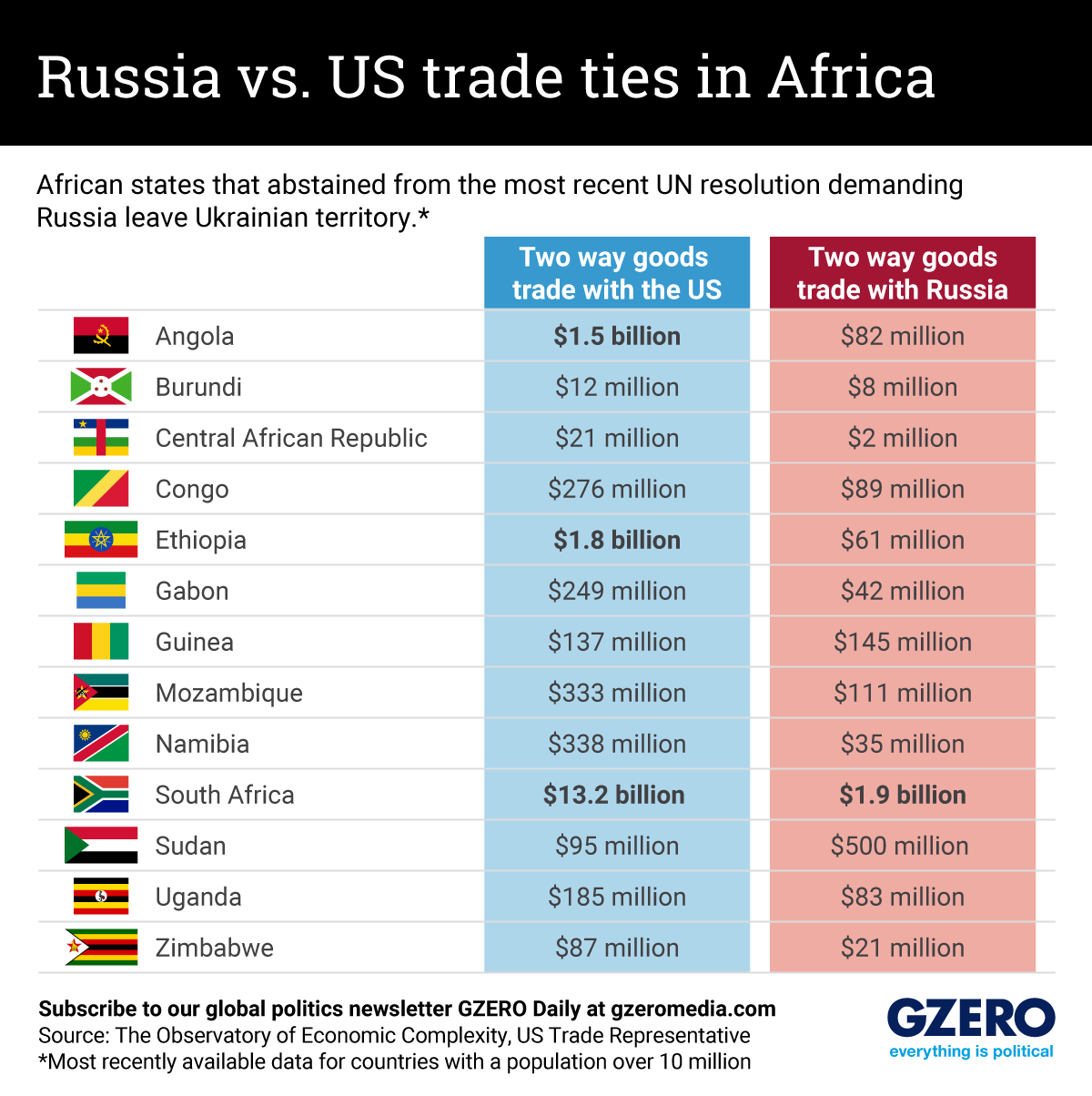February 26, 2023
On the one-year anniversary of Russia’s war in Ukraine, the UN General Assembly last week held a vote calling on Russian troops to leave Ukrainian territory. Those who opposed the resolution included the usual suspects that have aligned themselves closely with the Kremlin like Syria and Belarus, as well as Eritrea and Mali, which have close links to the Russian military.
Perhaps more interesting, however, is a look at those countries that abstained in a bid to reinforce their neutrality. Crucially, most of last week’s abstentions came from African states, which can be seen as a reflection of Russia’s growing political and economic clout in the region. But a look at bilateral trade relations between these African nations with Russia and the US, separately, shows that in most cases, two-way trade in goods with the US is way more lucrative.
Indeed, this suggests that Russia’s political leverage across the continent is multifarious. It comes from Russia’s vast reserves of oil, wheat and fertilizer — as well as its position in the global weapons trade, accounting for around half of all arms exports to Africa. We take a look at two-way trade between African states that abstained from the recent UN vote with the US and Russia, respectively.More For You
Most Popular
With the US leading production and China driving new reactor development, Bank of America breaks down the who, what, where, when, and why behind nuclear’s return. Stay ahead of global energy trends with Bank of America Institute.
Chris, an Army veteran, started his Walmart journey over 25 years ago as an hourly associate. Today, he manages a Distribution Center and serves as a mentor, helping others navigate their own paths to success. At Walmart, associates have the opportunity to take advantage of the pathways, perks, and pay that come with the job — with or without a college degree. In fact, more than 75% of Walmart management started as hourly associates. Learn more about how over 130,000 associates were promoted into roles of greater responsibility and higher pay in FY25.
Last week, at the Munich Security Conference, a group of global technology providers, including Microsoft, announced the Trusted Tech Alliance — committed to shared, verifiable principles for trusted, transparent, and resilient technology across borders. At a moment of economic volatility and zero-sum technological competition, countries and customers are demanding greater accountability from technology providers. The Alliance addresses this by bringing together companies from across Africa, Asia, Europe, and North America around shared commitments: transparent governance, secure development practices, supply chain oversight, open digital ecosystem, and respect for the rule of law — ensuring the benefits of emerging technologies strengthen public trust while driving job creation and economic growth. Explore the Trusted Tech Alliance here.
© 2025 GZERO Media. All Rights Reserved | A Eurasia Group media company.
